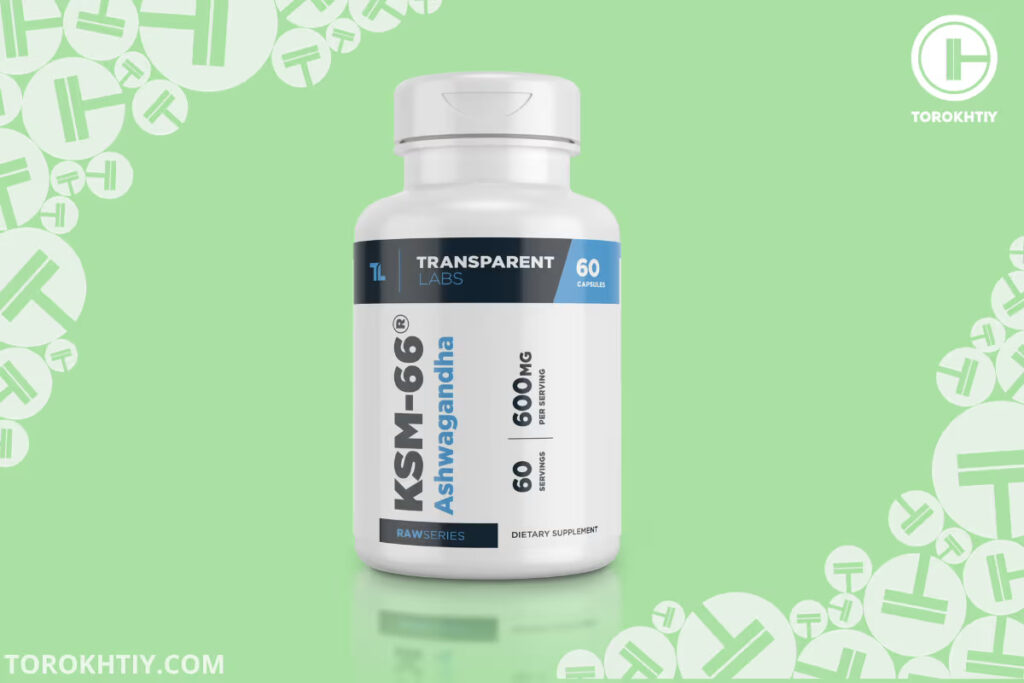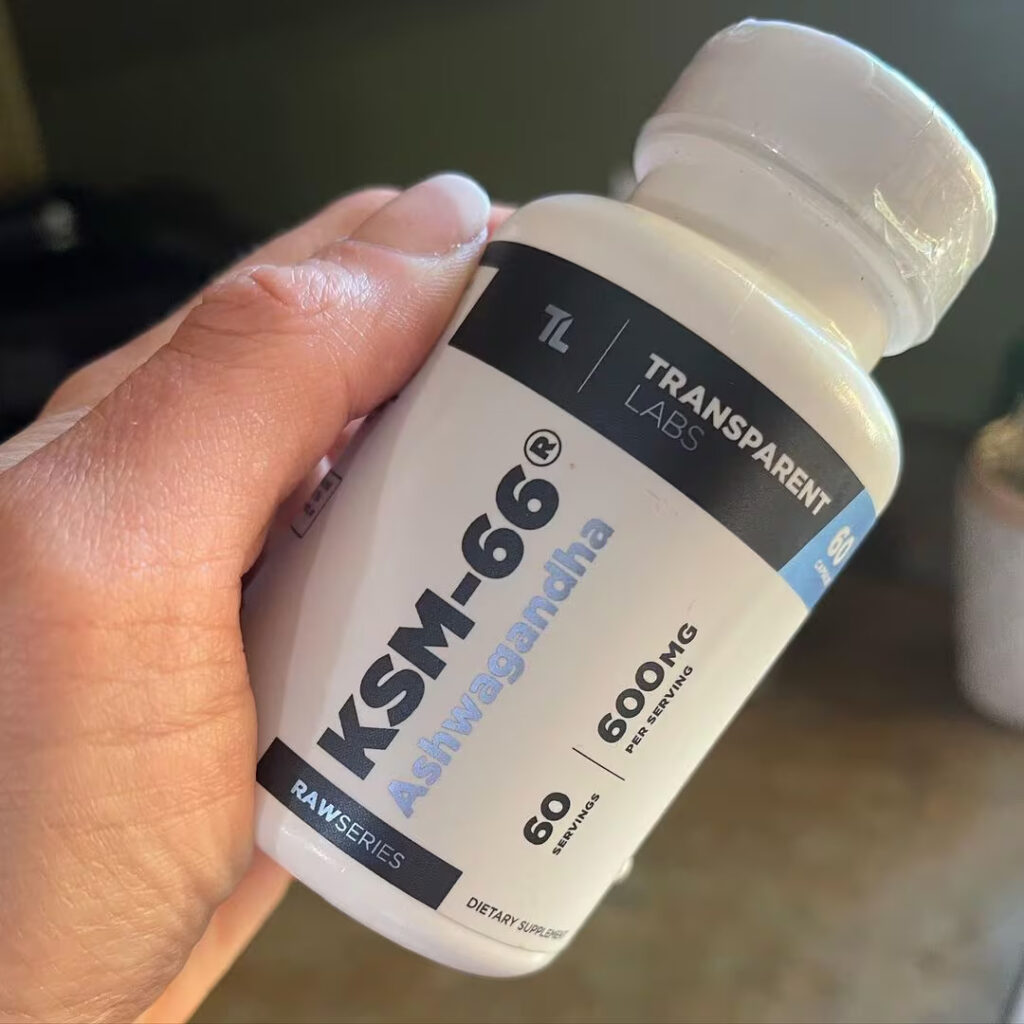Is Ashwagandha a Steroid?
Is ashwagandha a steroid? Ashwagandha has been known to promote stress resilience and enhance performance. Because of these purported benefits, some may wonder if ashwagandha is a steroid. This is important for anyone participating in sports that must follow anti-doping guidelines. Here we discuss what a steroid is, what ashwagandha is, and suggest a product you can try.
Is ashwagandha a steroid? Ashwagandha is an adaptogenic herb known to have stress-relieving effects and has been associated with enhancing cardiorespiratory and musculoskeletal performance. It has biologically active compounds. We will focus on the relationship between ashwagandha and banned substances such as anabolic-androgenic steroids (AAS).

1. What Is a Steroid Anyway?
Steroids are a type of molecule that serve various essential functions within the human body. There are many different types including sterols, sex hormones, corticosteroids, and anabolic steroids, among others. Corticosteroids are drugs used in the management and treatment of many areas of medicine to help regulate physiologic responses such as metabolism, immunity, and stress. Anabolic steroids are synthetic derivatives of the hormones like testosterone, nandrolone or DHT. Some are FDA-approved to be used to treat certain medical conditions. They have been non-FDA-approved to be used by athletes and bodybuilders to enhance muscle growth and physical performance.
2. Is Ashwagandha an Anabolic Steroid?
Ashwagandha, known botanically as Withania somnifera, is a medicinal herb traditionally used in Ayurvedic medicine to help the body adapt to stress and promote overall well-being. The biologically active chemical components include alkaloids, steroidal lactones, and saponins. Alkaloids bear anesthetic, cardioprotective, and anti-inflammatory properties. Steroidal lactones such as withanolides are the primary component responsible for the herb’s benefits. Saponins naturally occur in plants and have been shown in clinical studies to positively influence health, such as strengthen immunity, protect against cancer, and lower blood lipid levels. Because of these effects, some may wonder, is ashwagandha considered a steroid? By definition, ashwagandha is a steroidal compound owing to its chemical structure. However, it is not an anabolic steroid or steroid in the commonly perceived notion of this term.

3. Is Ashwagandha High In Testosterone?
Ashwagandha does not contain testosterone although it has been associated with increasing testosterone levels. The effect size appears to be larger in men with infertility and lower testosterone levels to begin with. It has also been associated with improving factors that are connected with healthy testosterone levels, such as sperm count and motility, seminal plasma levels of antioxidant enzymes and vitamins, and semen quality.
4. Is Ashwagandha Bad For Men?
Ashwagandha is generally considered safe for most people when taken at recommended doses – up to 3 months – as there is inadequate information to comment on long-term safety. However, like any supplement or herbal remedy, it may cause side effects in some individuals. Side effects have not been clearly defined; however, they may include gastrointestinal discomfort, diarrhea, nausea, and vomiting due to irritation to the intestinal mucosa. It is essential to consult with a healthcare professional before starting any new supplements, especially if you have underlying medical conditions or are taking other medications and supplements.

5. Is Ashwagandha Fda-Approved?
Ashwagandha is considered a dietary supplement rather than a drug in the United States. Dietary supplements and therefore, ashwagandha, do not require approval by the FDA.
Transparent Labs KSM-66 Ashwagandha

Ashwagandha supplement has some potential for increasing muscle mass and strength in untrained men although there are other variables that could influence this as well. It could be a good component of a supplement stack alongside a resistance training program.
Most of the benefits of Ashwagandha will be related to combined effect of:
- Stress management
- Improved Sleep
- Small improvements in Testosterone production

Withanolides are considered to be the major active component in ashwagandha. Although the optimal amount of withanolides is not yet clear, clinical trials have used doses between 1.5% and 35%.
Transparent Labs KSM-66 Ashwagandha contains a clinically studied dose of 600mg (5% bioactive withanolides) of ashwagandha extract per capsule. Doses of 600mg daily have been associated with improving sleep and doses between 600–1000mg daily have been seen to be more beneficial than lower doses for athletes performing an intensive exercise program.
Having said this, variations in extraction methods, formulation, and/or composition can influence physiological response. KSM-66 is produced using a proprietary extraction process from the roots of the ashwagandha plant as opposed to the leaves, which remains consistent with what is done in traditional practice and what is used in clinical trials. It is a full-spectrum extract, meaning it retains the natural proportions of various constituents as in the original herb. The product contains no artificial sweeteners, coloring, or preservatives and is gluten-free and non-GMO.
FAQ
Is Ashwagandha An Anabolic Steroid?
Ashwagandha contains many bioactive compounds and chemically speaking contains a steroidal compound, but is not an anabolic steroid or steroid in “pharmaceutical” sense. Is ashwagandha a natural steroid? Ashwagandha itself is an evergreen shrub and it is extracted from the root that is commonly used when put into supplement form. Withanolides could be considered a naturally occurring steroidal compound.
Why Avoid Ashwagandha?
Consumption of large amounts of ashwagandha may cause gastrointestinal upset. There have also been reports of abortifacient properties and ashwagandha-induced liver injury. However, more research is needed to confirm these reports and findings.
Is It Ok To Take Ashwagandha Everyday?
Ashwagandha can be taken everyday. It has been deemed safe when a dosage of 600 mg is taken for up to 3 months as there is inadequate data to determine long-term safety. Following this, you could take a break and restart it again.
Conclusion
Ashwagandha is a herb known to confer multiple health benefits such as mediate stress, strengthen immunity, and improve exercise performance. It contains biologically active compounds and has been associated with increasing testosterone levels although it does not itself contain compounds that would render it an anabolic steroid. Transparent Labs KSM-66 Ashwagandha is a supplement with a clinically studied dose of the major active component of ashwagandha, withanolides, that is available on the market.
Have you tried ashwagandha before? Did you notice any differences after taking it? Let us know in the comments, below!
Also read:
- Does Ashwagandha Increase Testosterone
- Tongkat Ali vs Ashwagandha
- Rhodiola vs Ashwagandha
- How Long Does Ashwagandha Take To Work
- Nutrition Ashwagandha
- How to Use Ashwagandha for Testosterone
- Does Ashwagandha Help With Weight Loss
- Ashwagandha for Muscle Growth
- Best Electrolyte Supplements
References:
- Alexander Hodgens, Tariq Sharman, “Corticosteroids”, National Library of Medicine, https://www.ncbi.nlm.nih.gov/books/NBK554612/
- Kavitha Ganesan; Sajedur Rahman; Patrick M. Zito, “Anabolic Steroids”, National Library of Medicine, https://www.ncbi.nlm.nih.gov/books/NBK482418/
- Camellia Akhgarjand, Farzaneh Asoudeh 2, Amir Bagheri 2, Zahra Kalantar 3, Zahra Vahabi 4 5, Sakineh Shab-Bidar 2, Hamid Rezvani 6, Kurosh Djafarian 1, “Does Ashwagandha supplementation have a beneficial effect on the management of anxiety and stress? A systematic review and meta-analysis of randomized controlled trials”, National Library of Medicine, https://pubmed.ncbi.nlm.nih.gov/36017529/
- Abhijit Deshpande, “Saponins from edible legumes: chemistry, processing, and health benefits”, National Library of Medicine, https://pubmed.ncbi.nlm.nih.gov/15117556/
- Adrian L. Lopresti,1,2 Peter D. Drummond,1 and Stephen J. Smith1, “A Randomized, Double-Blind, Placebo-Controlled, Crossover Study Examining the Hormonal and Vitality Effects of Ashwagandha (Withania somnifera) in Aging, Overweight Males”, NIH, https://www.ncbi.nlm.nih.gov/pmc/articles/PMC6438434/
- Mohammad Kaleem Ahmad 1, Abbas Ali Mahdi, Kamla Kant Shukla, Najmul Islam, Singh Rajender, Dama Madhukar, Satya Narain Shankhwar, Sohail Ahmad, “Withania somnifera improves semen quality by regulating reproductive hormone levels and oxidative stress in seminal plasma of infertile males”, Pubmed, https://pubmed.ncbi.nlm.nih.gov/19501822/
- Abbas Ali Mahdi 1, Kamla Kant Shukla, Mohammad Kaleem Ahmad, Singh Rajender, Satya Narain Shankhwar, Vishwajeet Singh, Deepansh Dalela “Withania somnifera Improves Semen Quality in Stress-Related Male Fertility”, Pubmed, https://pubmed.ncbi.nlm.nih.gov/19789214/
- “Ashwagandha”, Nccih, https://www.nccih.nih.gov/health/ashwagandha
- “Ashwagandha”, Ncbi, https://www.ncbi.nlm.nih.gov/books/NBK548536/
- Kae Ling Cheah 1, Mohd Noor Norhayati 1, Lili Husniati Yaacob 1, Razlina Abdul Rahman “Effect of Ashwagandha (Withania somnifera) extract on sleep: A systematic review and meta-analysis”, Pubmed, https://pubmed.ncbi.nlm.nih.gov/34559859/
- Diego A Bonilla 1 2 3 4, Yurany Moreno 1 2, Camila Gho 1, Jorge L Petro 1 3, Adrián Odriozola-Martínez 4 5 6, Richard B Kreider 7 “Effects of Ashwagandha ( Withania somnifera) on Physical Performance: Systematic Review and Bayesian Meta-Analysis”, Pubmed, https://pubmed.ncbi.nlm.nih.gov/33670194/
Why Trust Us?
With over 20 years in Olympic Weightlifting, our team does its best to provide the audience with ultimate support and meet the needs and requirements of advanced athletes and professional lifters, as well as people who strive to open new opportunities and develop their physical capabilities with us.
By trusting the recommendations of our certified experts in coaching, nutrition, dietology, and sports training programming, as well as scientific consultants, and physiotherapists, we provide you with thorough, well-considered, and scientifically proven content. All the information given in the articles concerning workout programming, separate exercises, and athletic performance, in general, is based on verified data. We ensure that you can rely on our professionals’ pieces of advice and recommendations that can be treated as personalized ones which will benefit you and fully meet your needs.
The product testing process is described in more detail here
Author: Jacek Szymanowski
Certified Nutritionist,
M.Sc.Eng. Biotechnology
Performance Architect,
Strength and Conditioning Specialist
With over 30 years of fighting experience, specialization in nutrition coaching for athletes, and expertise in metabolic health and dietary strategies, Jacek offers a comprehensive approach to optimizing your performance and well-being. Backed by a Master of Science degree in Biotechnology, Jacek remains at the forefront of scientific advancements, ensuring that his coaching is always evidence-based and up-to-date.







